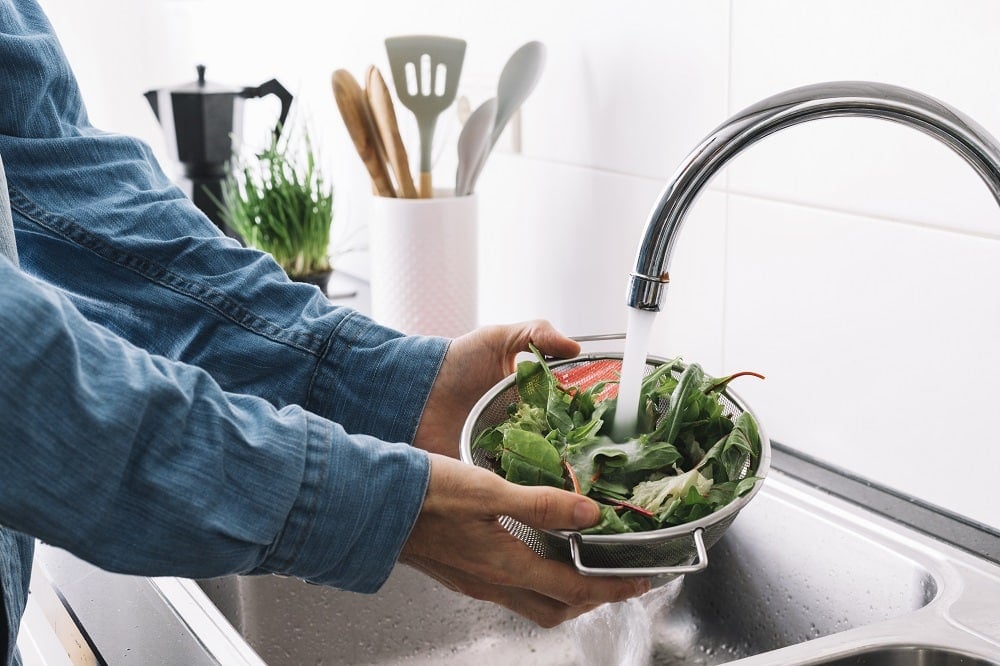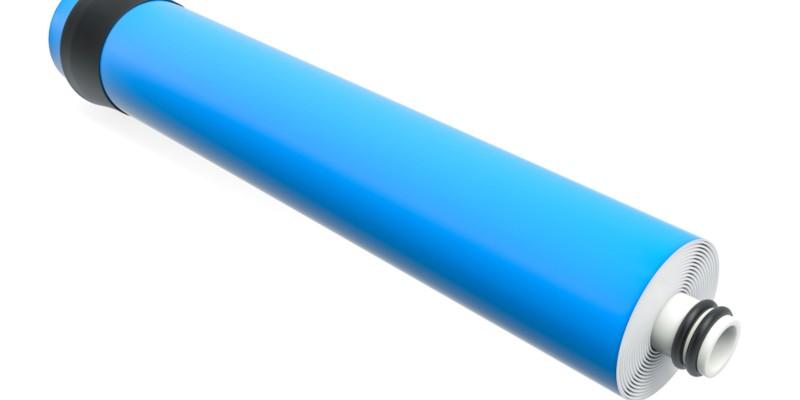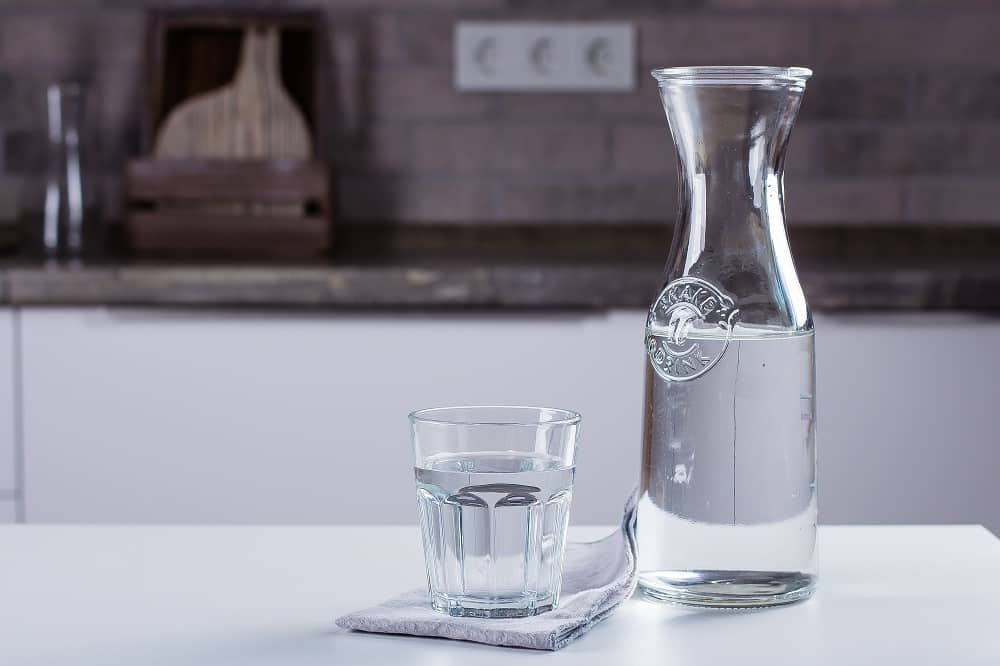Picking out the right type of water filter for your home can be a challenge. There are so many different types of systems, so much technical jargon, and such a wide range in prices that the whole business can easily become overwhelming. However, once you get down to it, water filters are pretty straightforward, with different options being designed to fill different needs. To help you make the right choice for your home, here is an overview of the most common systems and mechanisms.
Water Filters Types

Whole House Filter
A whole house water filter is the best option when treating a single faucet’s water wouldn’t be enough. If you live in an area that has low quality water in general, then getting a whole house system can allow you to shower, drink, and wash dishes with peace of mind. Installing a system for filtering water as it enters your house will likely be cheaper than getting a separate filtration system at every single faucet and shower head, plus maintenance and replacement in the future would be a lot simpler.

Shower Head Water Filter
If the water coming into your home isn’t of the best quality, a shower head filter can make all the difference. Specifically, a filter can weed out excessive chemicals that might irritate and damage both your skin and hair. In situations where getting a full house system isn’t viable, you can make do with a shower head system and a pitcher water filter for drinking. This can also be the best solution if you have problems with plumbing one specific part of your house. If only one bathroom is affected mineral buildup in the pipes, then a shower head filter can solve your problems until you can get a plumber out there.
Under Sink
Installing a filtration system under your sink comes with several unique benefits and drawbacks. On the plus side, it filters water a lot faster than a pitcher filter and it enables easy use of filtered water for situations where you need a lot of water, such as washing dishes. On the downside, under sink filters are big and bulky, but that’s mostly offset by being installed out of sight below the sink. It can be difficult to maintain an under sink filter, but they shouldn’t require replacement nearly as often as faucet filters or pitcher filters.
Faucet
If you don’t want to get a big and potentially expensive system installed under your sink, you can always get a smaller and more affordable filter attached directly to the faucet. The downside of faucet filters is that they can’t purify your water quite as efficiently, which can mean a lower volume of output or some impurities being left in the water. If your quality of water is good but you just want it to be a little better, then these downsides can be negligible.
Pitcher
The cheapest, easiest, and most common solution is to get a pitcher water filter. There are no complicated instructions or installation required, making it the best choice for those in need of immediate help. They can require more frequent maintenance than other options, but that maintenance often requires little more than replacing the disposable filter, making it a simple if somewhat expensive process. If all you need is drinking water that tastes a little better and are willing to wait a few minutes after each filling, then a pitcher filter is your best bet.
Specific Filtration Mechanisms
On top of deciding what kind of system you want, you may also need to decide what kind of mechanism you need to deal with your particular water issues. Some systems come with a variety of filters, while others have only one. You’ll need to figure out exactly what kind of problems your water has before determining which sort of filter is best.

Softener
A water softener is a certain kind of water filter that specializes in pulling minerals from your water. In effect, this will make your water less hard, hence the name. The first major benefit of softening your water is that it will likely taste better. If your water has a noticeable and undesirable flavor, then a softener might be the answer. The second major benefit is that a softener will reduce scale in your plumbing. This can increase the longevity of your pipes and reduce the need for maintenance in the future.

Reverse Osmosis
A reverse osmosis filter is one of the most intuitive types of water filter. In essence, it forces all your water to pass through a membrane with extremely small pores. These pores are large enough for water to pass through, but too small for particulates and other contaminants, including chemicals and metals. In many cases, homeowners with water problems don’t consider reverse osmosis filters because they can’t see or feel any solids in their water. This is a common misconception because the pores in a reverse osmosis filter are extremely small and filter at the level you would need a microscope to see.
Activated Carbon
In some ways, activated carbon filters work like reverse osmosis filters. Both trap undesirables, but they differ mainly in what they target. While RO filters are good for taking heavy metals and chemicals out of your water, activated carbon filters are better at capturing organic substances like chlorine. If you’re worried about chemicals in your water, then activated carbon is probably your best bet.
Alkaline
The basic idea of an alkaline filter is that it passes your water over a series of plates. These plates have an electric charge that manipulates the water and produces an end result with much less acidity than what you started with. Your water then gets softer and tastes better.
UV
Unlike the previous two types of filters, UV filters subject your water to light, ultimately resulting in the death of microorganisms in your water. If you live in an area where bacteria in the water supply is a major concern, then a UV filter is absolutely necessary. Microorganisms are particularly bothersome because not only can they cause a lot of harm if ingested, but they also aren’t always caught by other types of filters.
Infrared
Like UV filters, infrared filters treat your water with light, but they also add a heating element as well. This softens your water by negatively charging it. If a water softener system isn’t viable for one reason or another, then an infrared filter will probably suffice.
Which is best for your house?
If you want to treat all the water in your house, go for a whole house system. If you only want to treat the water at one specific sink, then decide if you want a comprehensive and expensive solution like a sink filter, an inexpensive and easy solution for drinking water like a pitcher filter, or something in between. If you have skin or hair problems and think the water is to blame, then opt for a shower head filter.
If you have hard water, consider a water softener, alkaline filter, or infrared filter. If you think you might have bacteria in your water, go for UV. If you care about organic compounds, get activated carbon. If you think heavy metals are to blame, then consider reverse osmosis.
Related Articles
13 Best Water Filters to Consider Right Now
13 Best Whole House Water Filters
13 Best Water Pitcher Filter & Dispenser



